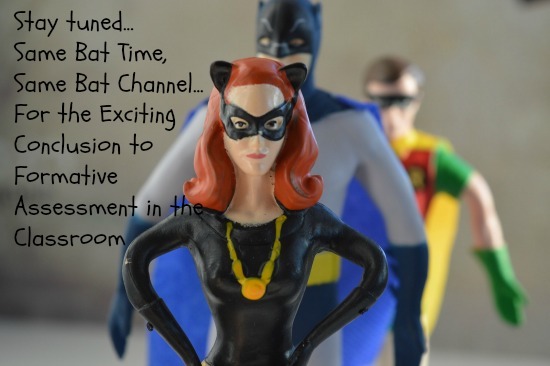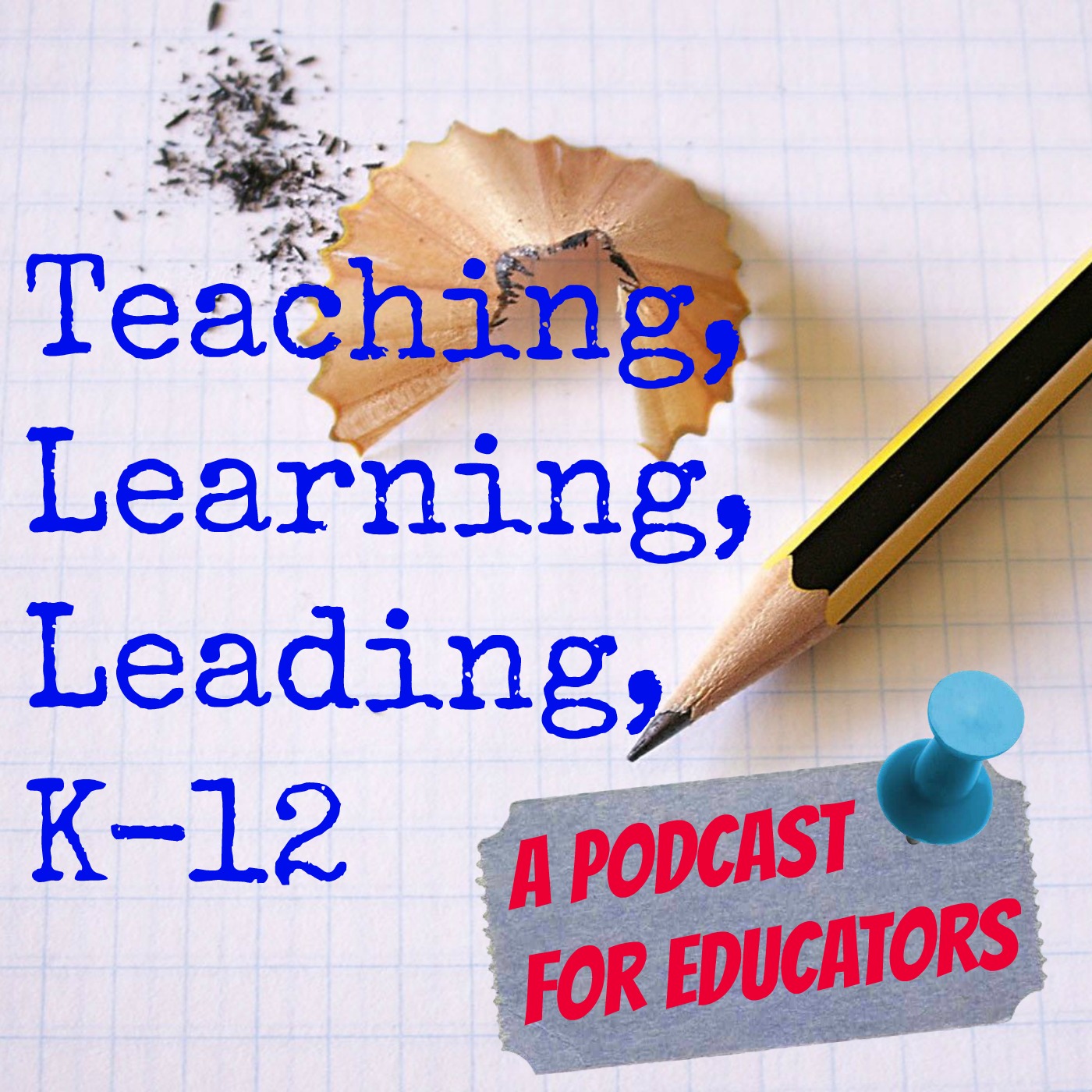Episodes
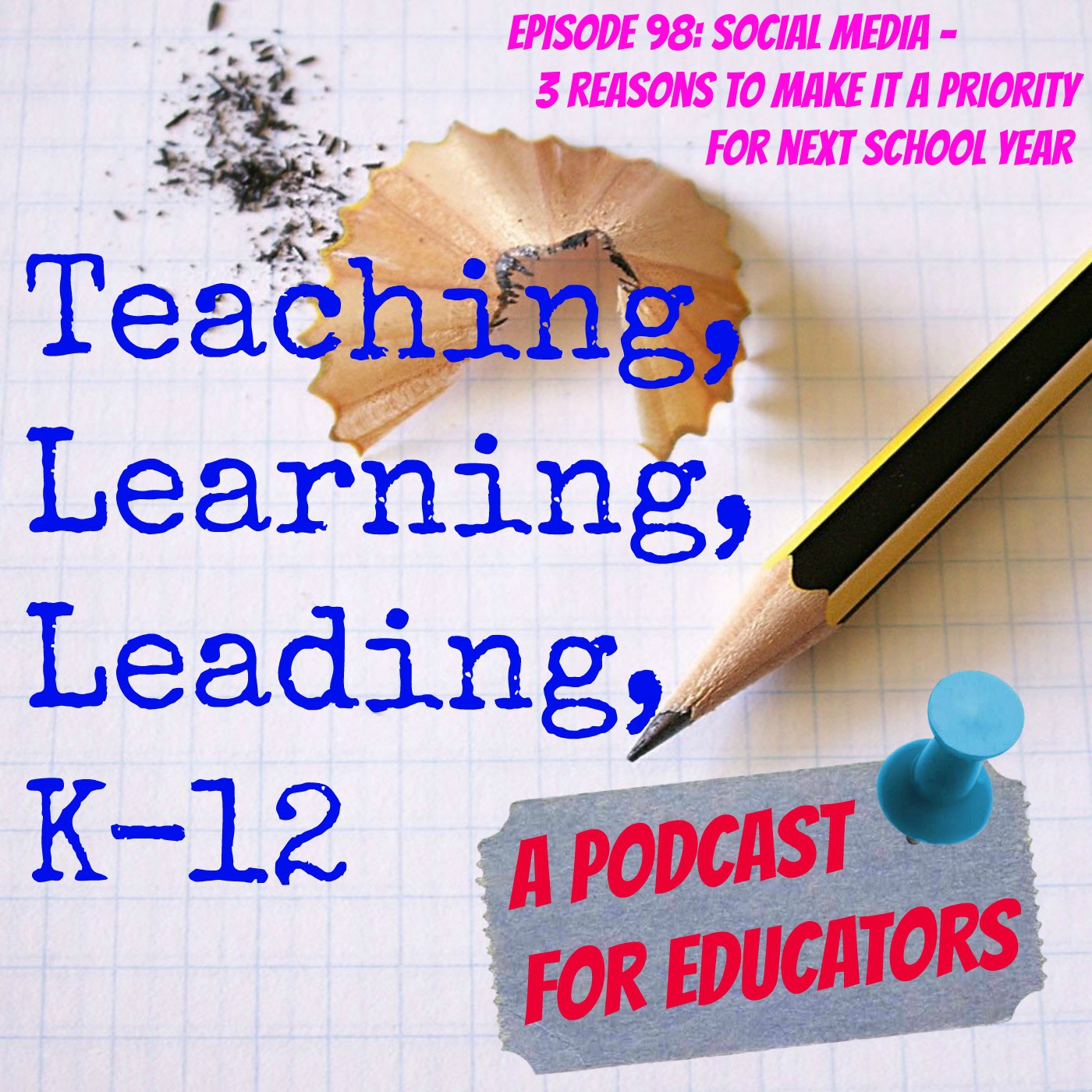
Thursday May 05, 2016
Episode 98: Social Media - 3 Reasons to Make it a Priority for this Next School Year
Thursday May 05, 2016
Thursday May 05, 2016
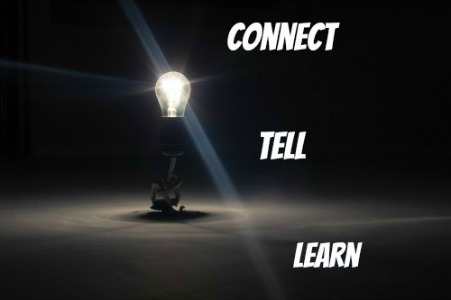
Where have you been? Come on … are you really afraid of social media? Hmmm?
I understand why you might have some fears, but that’s because the news conglomerates have convinced you that only bad comes from that evil social media. Their tales of woe are just a minuscule aspect that can happen whereas so much more good comes from getting familiar with social media trappings.
The numbers show (listen to the podcast) that there is no doubt that billions of people are using social media which means that there is a great chance that all of your families, students, community members, and businesses are out there in the digital world.
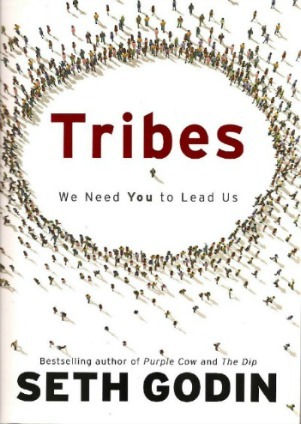
Seth Godin, in his book Tribes, explains that the world is in need of leaders and that when individuals, groups, and organizations assume these roles, the word is spread between interconnected tribes. So, why can’t schools step-up and become the leaders?

That is exactly why you need to be there, but more specifically here are my...
3 Reasons Why you Need to Make Social Media a Priority for Next School Year
1. Connect
2. Tell
3. Learn
Listen to the podcast and you will hear me explain my thoughts about these three words.
So get some paper and a pencil and take some notes as to why it is time for you and your system to embrace social media.
Thanks for listening!
Have an awesome day!
Check- out these resources:
The Social Media Examiner (Awesome blog, website and audio podcast)
So You have a Twitter Account-Now What? By Jennifer Gonzalez
50 Educators You Should Follow on Pinterest by Kasey Bell
What’s Working Now Facebook Post Ideas by Kim Garst
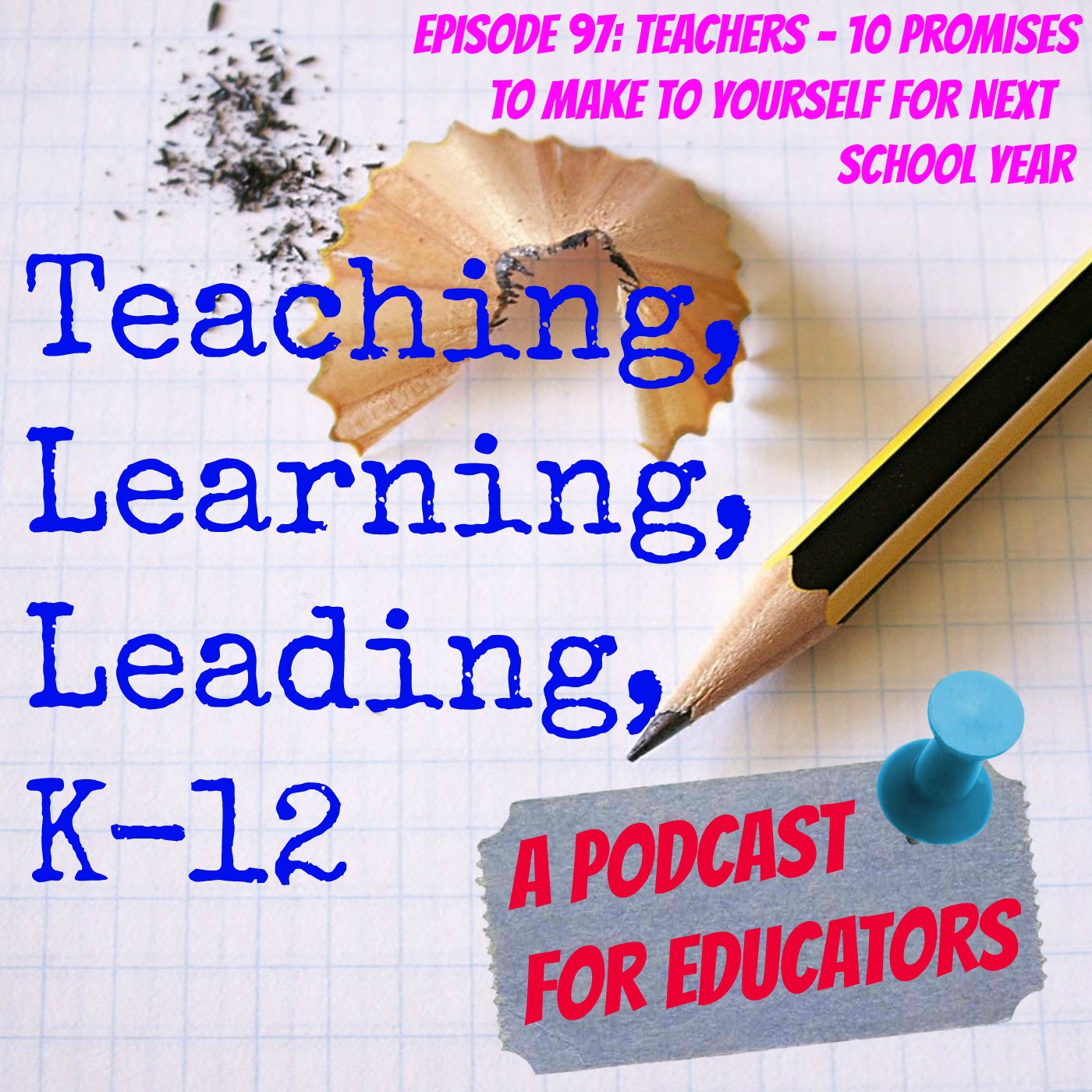
Wednesday Apr 27, 2016
Episode 97: Teachers - 10 Promises to Make Yourself for Next School Year
Wednesday Apr 27, 2016
Wednesday Apr 27, 2016



a. Get to know more kids by name sooner
b. Make more positive contacts home
c. Create a blog
d. Learn to use interactive boards with the kids
e. Emphasize vocabulary
f. Plan backwards-Start with the end in mind-Use a Unit Plan
g. Get better at giving instructional feedback
h. Use formative assessment more frequently
i. Use charts with formative assessments, especially whiteboards
j. Create more engaging activities

Check out my Pinterest boards for additional support: www.pinterest.com/smiletto
laura Robb - Vocabulary is Comprehension
Enjoy!
Length: 24:42
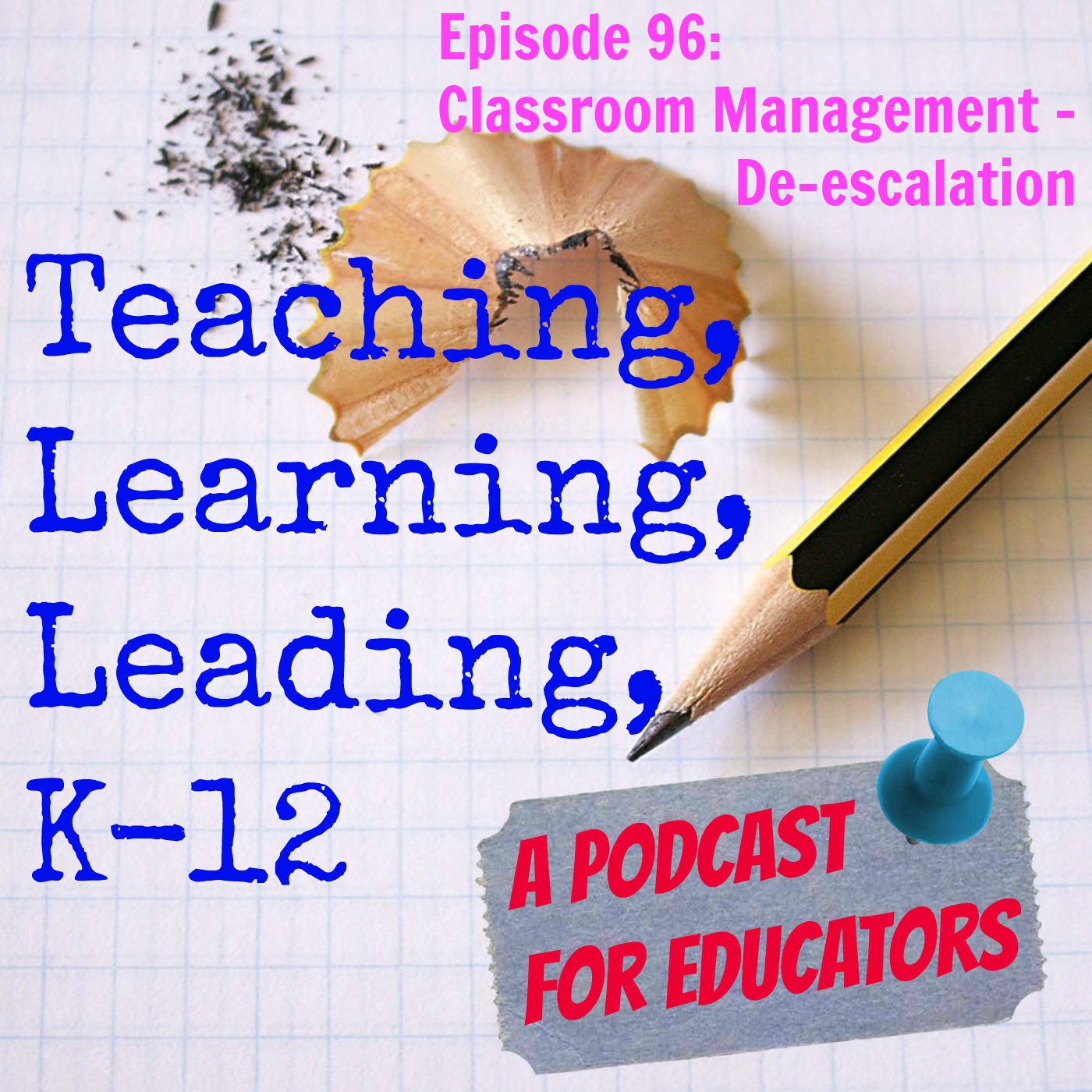
Wednesday Apr 20, 2016
Episode 96: Classroom Management - De-escalation
Wednesday Apr 20, 2016
Wednesday Apr 20, 2016

If you work in a school at some point you are going to have to deal with confrontation. Issues arise that need you to try to remove the heat, lower the temperature, de-escalate the situation.
Today, in this segment on classroom management, I am focused on de-escalation.
You know…the concept that if we stay calm and use a specific skill set that we can keep in control of a situation.

Here are my ...
10 Keys to De-escalation:
1. Someone has to be the adult
2. Lower the temperature.
3. Watch your tone.
4. Be aware of your hands
5. Choose your words carefully
6. Don’t make them look at you.
7. Is it necessary to talk right now?
8. Remove the audience.
9. Don’t talk down…actually move so you don’t hover over
10.Do not threaten.
Throughout the show, I explain what I mean with each key.
I challenge you to place this list of 10 techniques, strategies, and concepts someplace in your classroom where you can see them. Put the list someplace where the students wouldn’t pay attention but you would. After putting the 10 keys someplace that you see them make sure that you practice them.

What do you think?
When you feel that blood boiling, that temperature rising, and the brain is suggesting irrational solutions refer to the list.
Remember above all, my number one key is that someone has to be the adult and it should be you.
Here are some other podcast episodes that might be helpful for you:
Episode 22: Technology and Classroom Management
Episode 85: Classroom Management- Its Ok to Start Over
Episode 86: Classroom Management- Consequences
Episode 87: Classroom Management- Rules

Enjoy!
Length: 26:14
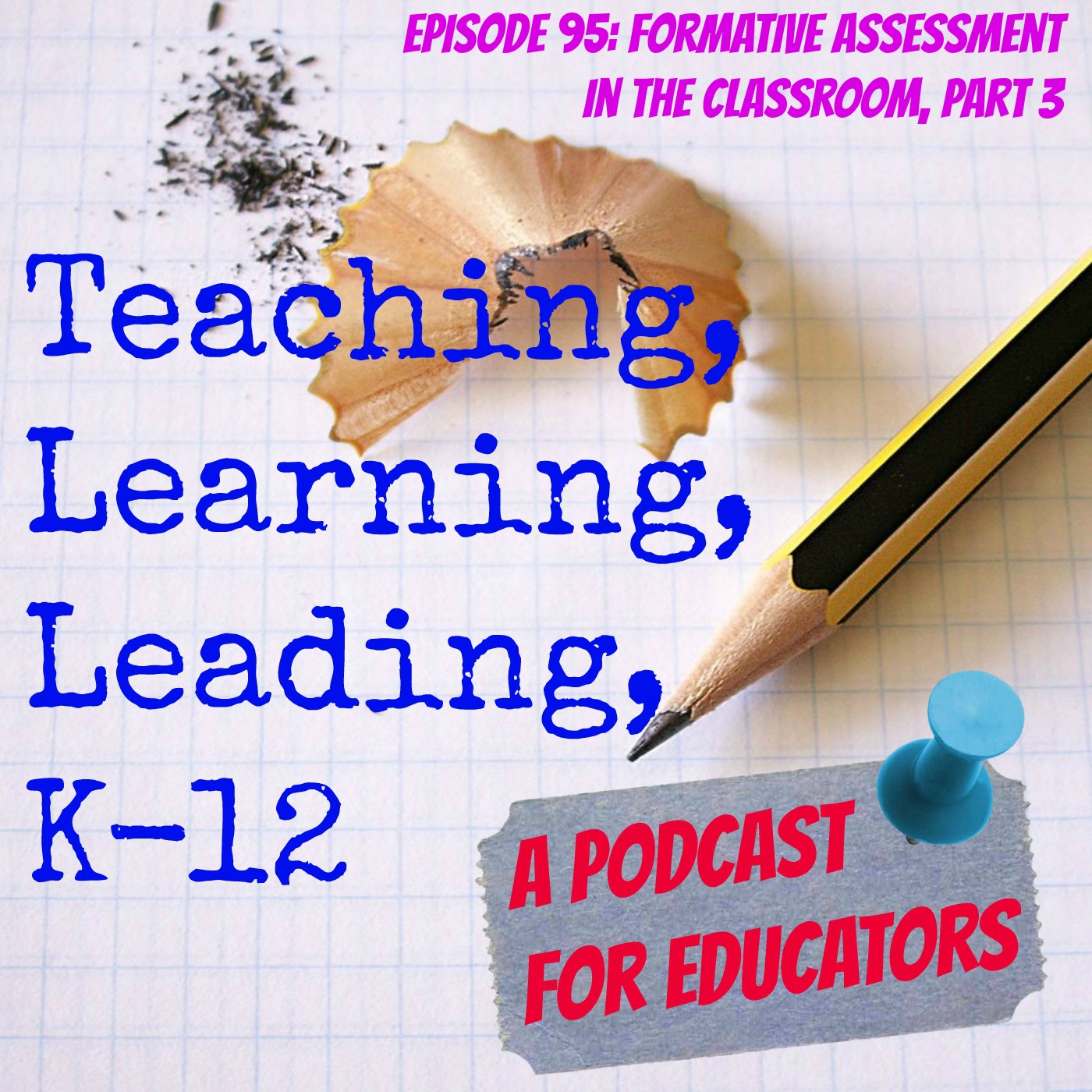
Wednesday Apr 13, 2016
Episode 95: Formative Assessment in the Classroom, Part 3
Wednesday Apr 13, 2016
Wednesday Apr 13, 2016
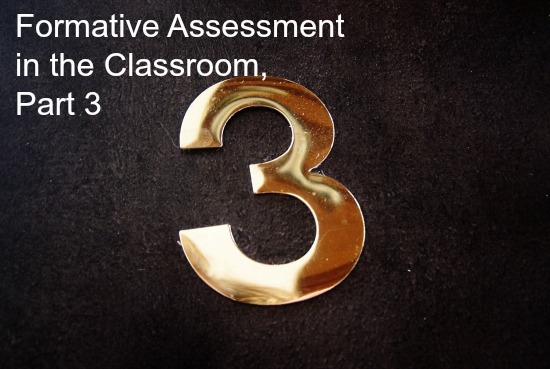
This is the conclusion of a three-part series on Formative Assessment in the Classroom.
If you haven’t listened to the first two parts they are Episodes 93 and 94.
In this three-part journey, I have introduced you to several characterizations of kids you might have in your classes:
Mr. Compliant, The Recluse, The Answerer, The Comedian, The Disruptor, The Questioner, and Love Struck. (I explain each of these in the episode.)
By the way, they sound a little like characters from the 1960s Batman TV show…
After reading and knowing who they are can we agree that…
Kids are different from each other.
Can we agree on this?
If so, we need to make sure that we are taking the time to check if they are following you. It is important to see if they get what you are introducing them to, you know ... do they get the content?
The way to do this is to plan for formative assessment opportunities during your lessons.
In the second part of this series I explained my working definition of Formative Assessment:
Formative assessment is the purposeful use of activities that will not be graded that will reveal to the teacher what the kids know and don’t know. The results of these activities will be used to adjust instruction to help the kids develop a better understanding, over-come confusion, or move on because they already get it.
In today’s episode, I introduce you to formative assessment tools.
Listed below are a few formative assessment tools that teachers are using in their classrooms. Each of these is linked in my Pinterest board called Assessment Strategies.
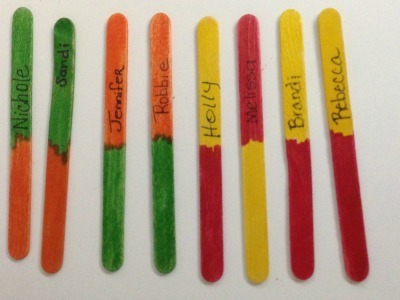
10 Tools for Formative Assessment in the Classroom:
2. Ten Assessments in 90 Seconds
5. Stickies
8. Craft sticks
9. Craft Sticks with mini-whiteboards
10. Charts
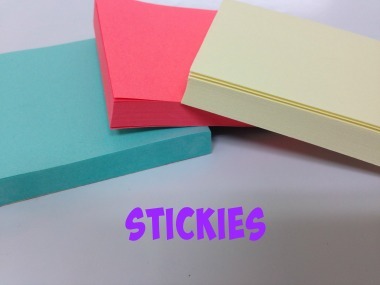
Go here to read my blog article on formative assessment.
Keep in mind that all kids are not the same; hence, they need you to figure out whether they are following you and understanding the content. The way to do this is with formative assessment. These activities are purposeful, not graded and the information gathered is used to adjust instruction.
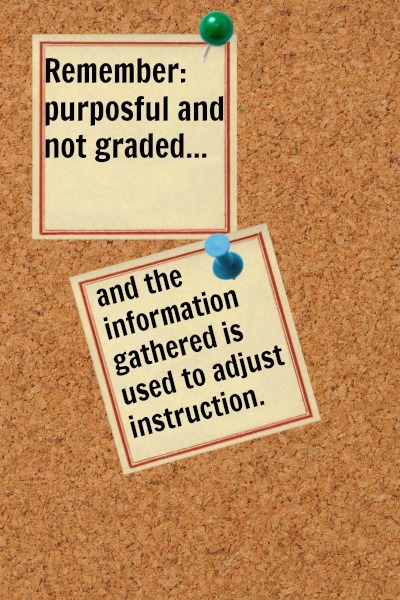
In this series, I talked about the Why, the What, and the Tools.
So have you made plans to take a look at my Pinterest boards?
Do so now.
Go check out the many ideas for formative assessments that are linked on my site.
Have fun working with the kids and helping them get your content!
Nothing better than when that light bulb comes on!

Length: 33:44
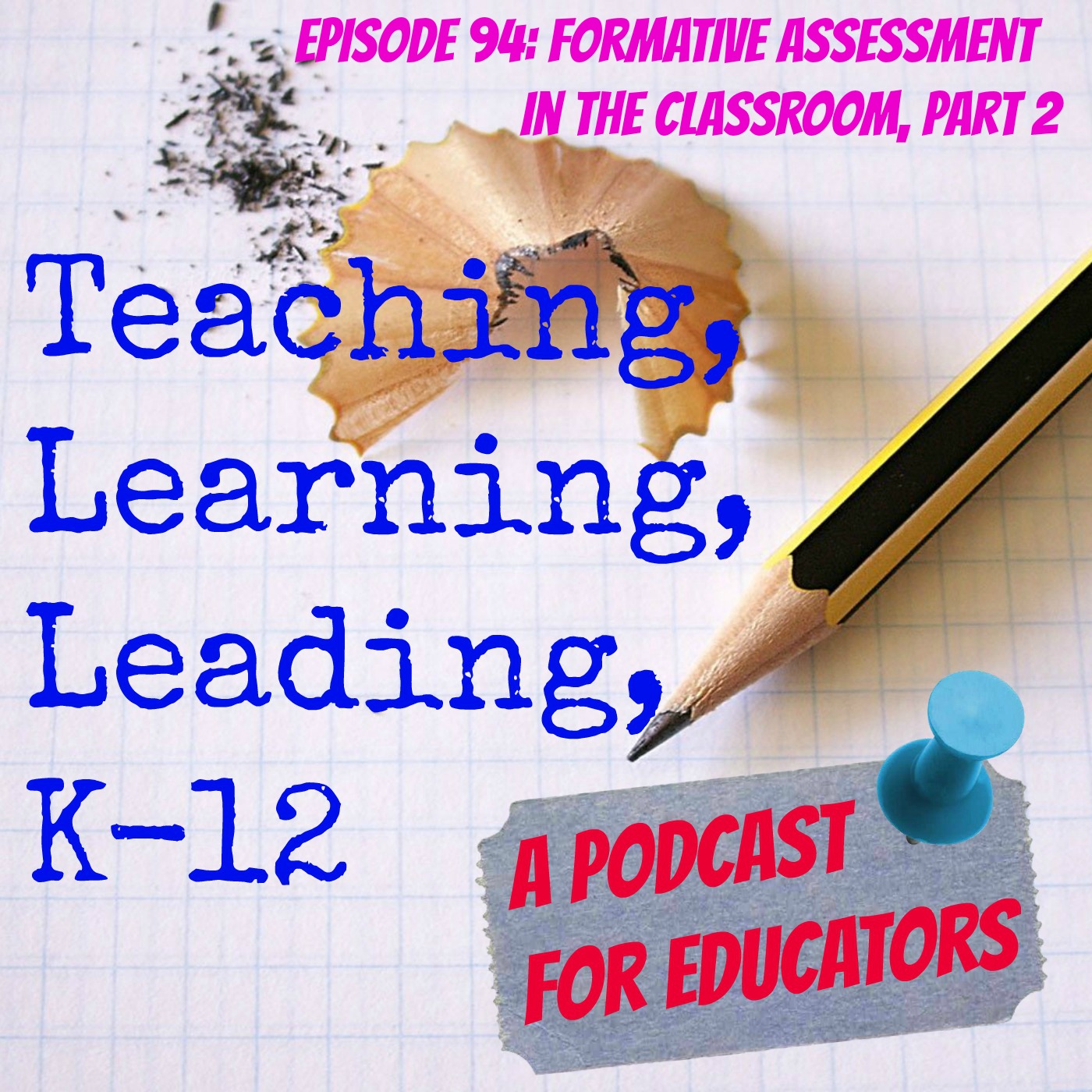
Wednesday Mar 30, 2016
Episode 94: Formative Assessment in the Classroom, Part 2
Wednesday Mar 30, 2016
Wednesday Mar 30, 2016
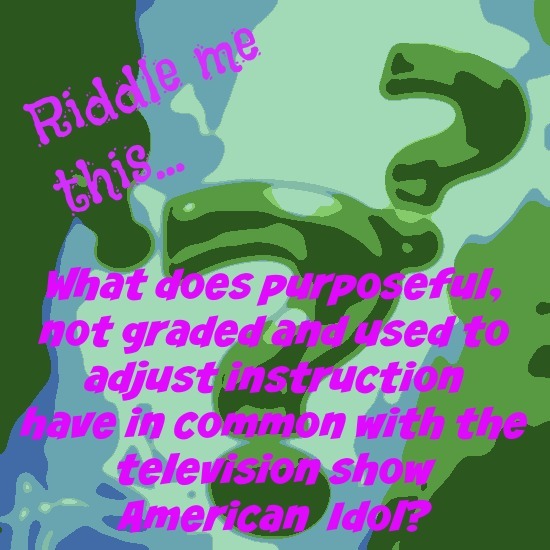
Before we take a deep dive into the answer let's first revisit my definition of formative assessment ….
Formative assessment is the purposeful use of activities that will not be graded that will reveal to the teacher what the kids know and don’t know. The results of these activities will be used to adjust instruction to help the kids develop a better understanding, overcome confusion, or move on because they already get it.
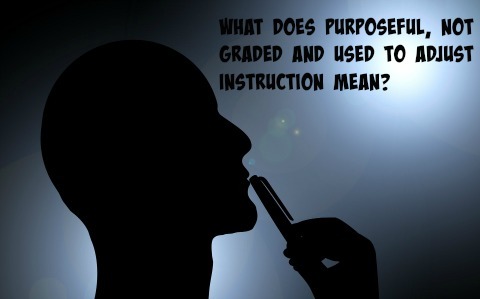
To understand formative assessment you must understand what it is.
